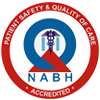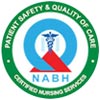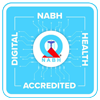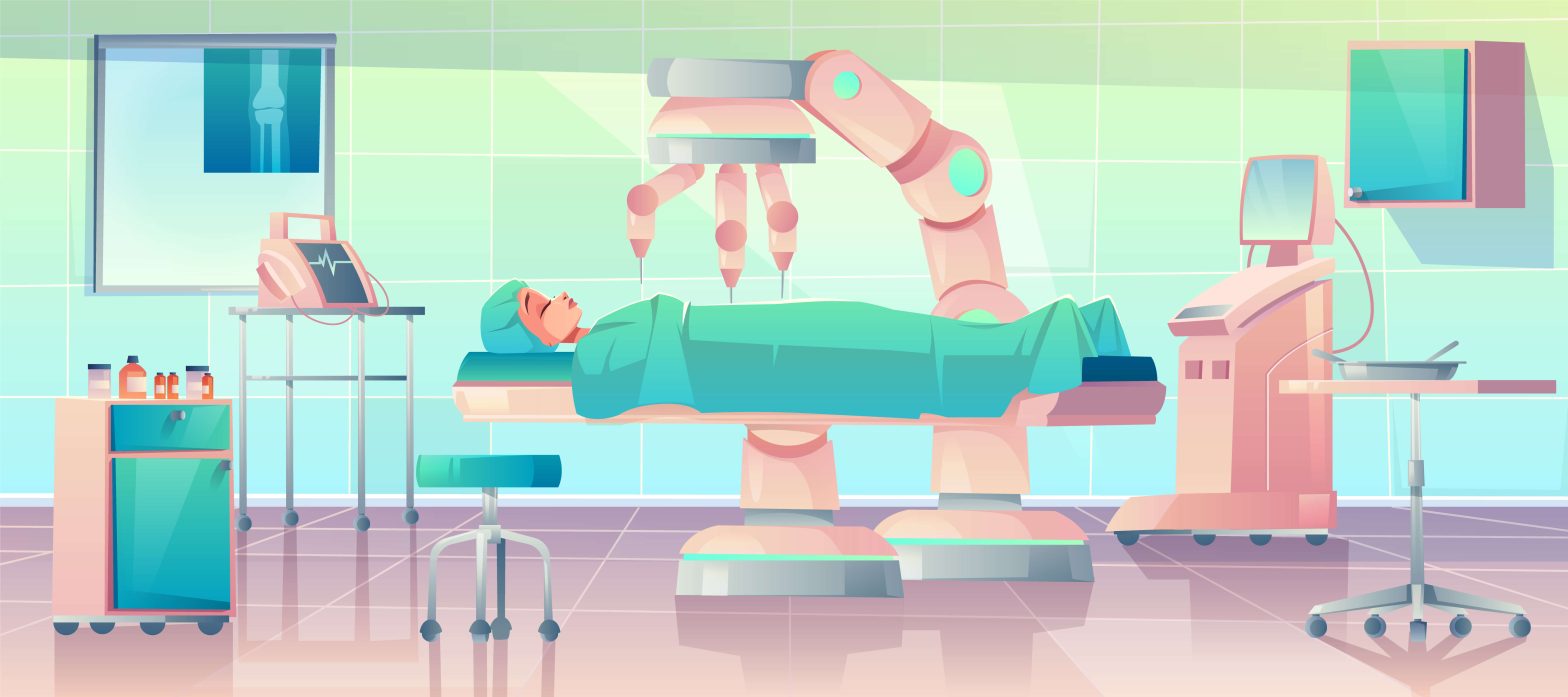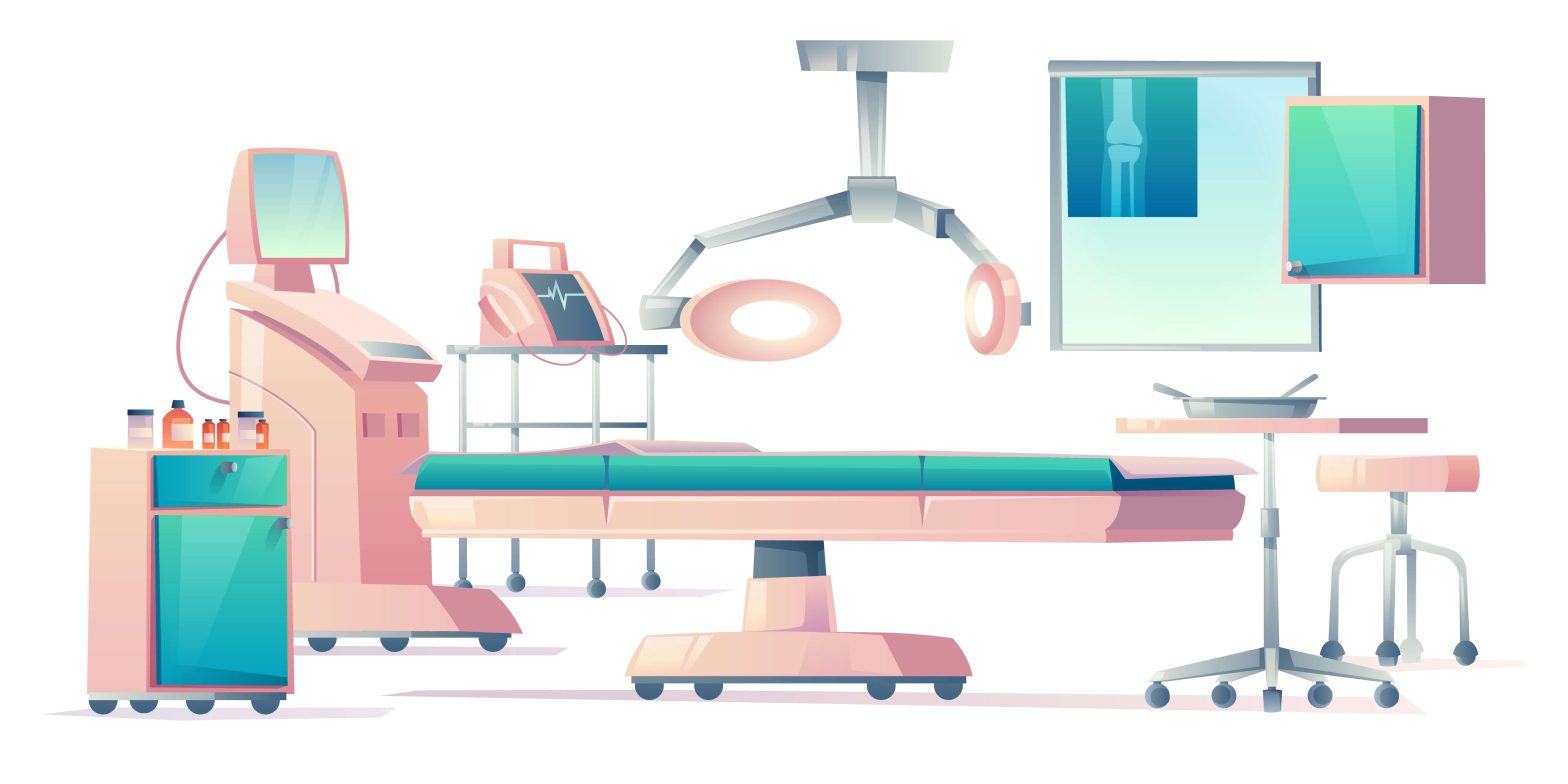Have you ever experienced a sharp or persistent pain in your lower back or side? This could be a sign of kidney pain, a serious issue that requires immediate attention. Understanding when to see a doctor for kidney pain can make a significant difference in your overall health. Kidney pain is often mistaken for common… Continue reading Signs You Need to See a Doctor for Kidney Pain

Archives: Blogs
What Is A Nuclear Radiologist
A nuclear radiologist, also known as a nuclear medicine physician, is a doctor who specializes in testing and treating people using a type of radioactive materials. With this technology, they can examine muscle tissue, organs, and blood and treat problems in those areas. Nuclear radiology uses substances called radiopharmaceuticals. The radiation in them can treat… Continue reading What Is A Nuclear Radiologist
GUIDE TO NUCLEAR MEDICINE IMAGING
Nuclear medicine is a specialized area of radiology that utilizes minute amounts of radioactive materials, known as radiopharmaceuticals, to examine organ function and structure. This multidisciplinary field combines chemistry, physics, mathematics, computer technology, and medicine. Unlike traditional X-rays that pass through soft tissues, nuclear medicine allows for the visualization of organ and tissue structure as… Continue reading GUIDE TO NUCLEAR MEDICINE IMAGING
Nuclear Medicine In Oncology
Nuclear medicine therapy, also known as molecular radiotherapy or peptide receptor radionuclide therapy (PRRT), is an innovative approach for treating certain types of cancer. This targeted treatment can be used alone or combined with other therapies like chemotherapy, surgery, hormone therapy or radiation therapy. How Does Nuclear Medicine Therapy Work? Nuclear medicine utilizes radioactive materials… Continue reading Nuclear Medicine In Oncology
Advancements In Nuclear Medicine Technology
Precision Medicine And Personalized Treatment One of the key trends in nuclear medicine and radiotherapy is the shift toward precision medicine and personalized treatment. Medical professionals are now able to tailor treatment plans to individual patients by utilizing molecular imaging techniques and targeted therapies. This approach enables a more accurate diagnosis, precise dose delivery, and… Continue reading Advancements In Nuclear Medicine Technology
The Role Of Radiotracers In Nuclear Medicine
Radiotracers play a pivotal role in advancing medical imaging techniques, notably in positron emission tomography (PET), single-photon emission computed tomography (SPECT), and gamma cameras. These radioactive substances, when introduced into the body, enable the creation of highly detailed images of internal structures and processes, revolutionizing diagnostic capabilities and treatment strategies for various medical conditions. The… Continue reading The Role Of Radiotracers In Nuclear Medicine
An Introduction To Nuclear Medicine
Nuclear imaging is a type of medical imaging that provides detailed pictures of what is happening inside the body at the atomic and molecular level. This information is crucial for understanding the underlying processes of disease and for guiding the most effective treatment plan for each individual patient. Nuclear Imaging insights in terms of diagnosis… Continue reading An Introduction To Nuclear Medicine
Cardiac Catheterization: When Is It Required?
Cardiac catheterization is a procedure used to diagnose and treat certain heart problems. To do this, the doctor puts a long, flexible tube (catheter) into a blood vessel. The doctor then guides the catheter into the heart to find and treat any problems.In children, cardiac catheterization is done by a pediatric cardiologist. This is a doctor… Continue reading Cardiac Catheterization: When Is It Required?
Types Of Pediatric Cardiology Test
There are a number of special tests pediatric cardiologists may do to learn more about your child’s heart. Electrocardiogram An electrocardiogram (ECG or EKG) is a quick test using stickers on the chest, arms, and legs to measure the electrical activity of the heart. This test is useful for the detection of heart rhythm abnormalities… Continue reading Types Of Pediatric Cardiology Test
Tips For Preventing Heart Problems In Kids
Prevention of Heart Disease Starts in Childhood You may think of heart disease as a problem for adults, not for your young children. Diet and exercise habits started in childhood can start a lifetime of heart health . . . or a lifetime of heart damage. Some of the causes of adult heart disease that… Continue reading Tips For Preventing Heart Problems In Kids
Advances In The Diagnosis Of Congenital Heart Disease In Children
Aortopathy Aortopulmonary window Atrial septal defect Atrioventricular (AV) canal Cardiac arrhythmia Coarctation of the aorta Congenital heart block Congenitally corrected transposition of the great arteries Constrictive pericarditis Double outlet right ventricle Ectopia cordis Heterotaxy syndrome heart disease Hypoplastic aortic arch Interrupted aortic arch Partial anomalous pulmonary venous return Patent ductus arteriosus Pulmonary atresia with intact… Continue reading Advances In The Diagnosis Of Congenital Heart Disease In Children
Signs Of Heart Problems In Children
Acquired Heart Disease Acquired heart disease is the kind we most often associate with adults, but children and teens can also be affected. The most common acquired heart diseases in children are rheumatic heart disease and Kawasaki disease. What Is Rheumatic Heart Disease? Rheumatic heart disease is the most serious complication of rheumatic fever, an… Continue reading Signs Of Heart Problems In Children
What Is A Pediatric Cardiologist?
Pediatric cardiologists are heart doctors who work with children. Their practice is different from that of heart doctors who treat adults. Pediatric cardiologists primarily treat problems with a child’s heart’s structure or rhythm. What Does A Pediatric Cardiologist Do? Pediatric cardiologists look for heart issues using tools such as echocardiogram, electrocardiogram, and imaging tests. They… Continue reading What Is A Pediatric Cardiologist?
Understanding Congenital Heart Defects In Children
A congenital heart defect is a problem with the structure of the heart that a child is born with. Some congenital heart defects in children are simple and don’t need treatment. Other congenital heart defects in children are more complex and may require several surgeries performed over a period of several years. Types Of Congenital… Continue reading Understanding Congenital Heart Defects In Children
Pediatric Cardiac Surgery: Types And Considerations
Heart surgery in children is done to repair heart defects a child is born with (congenital heart defects) and heart diseases a child gets after birth that need surgery. The surgery is needed for the child’s wellbeing. There are many kinds of heart defects. Some are minor, and others are more serious. Defects can occur… Continue reading Pediatric Cardiac Surgery: Types And Considerations
Lifestyle Changes To Prevent Diabetes
Reduce your total carb intake Lowering your carbohydrate intake can help regulate blood sugar levels. Focus on consuming complex carbohydrates like whole grains, legumes, and vegetables while limiting refined sugars and processed foods. Exercise regularly Engaging in regular physical activity, such as brisk walking, cycling, or swimming, can improve insulin sensitivity and lower the risk… Continue reading Lifestyle Changes To Prevent Diabetes
New Innovative Advances In Diabetes Treatment
Intervention for Lifestyle Modification in Diabetes Lifestyle Modification: A Cornerstone in Diabetes Management Diabetes mellitus is a chronic condition that affects millions of people worldwide. While medication and insulin therapy are essential components of diabetes management, lifestyle modification plays a pivotal role in achieving optimal blood glucose control and overall well-being. Why Lifestyle Modification Matters… Continue reading New Innovative Advances In Diabetes Treatment
The Link Between Obesity And Diabetes
Type 1 Diabetes And Obesity Unlike with Type 2 diabetes, the majority of people with Type 1 diabetes aren’t obese. But, there’s an association between obesity and the onset of Type 1 diabetes. Weight gain lowers the age at which a diagnosis is made. This is called “the accelerator hypothesis.” The diagnosis is accelerated in… Continue reading The Link Between Obesity And Diabetes
Monitoring Blood Sugar At Home
How Can I Monitor My Blood Sugar At Home? There are two main ways you can monitor your blood sugar at home if you have diabetes: With a glucose meter and finger stick. With a continuous glucose monitor (CGM). You may choose either or both methods for a variety of reasons Glucose Meters And Test Strips The… Continue reading Monitoring Blood Sugar At Home
The Importance Of Regular Diabetes Check-ups
The following eight diabetes exams and tests : 1. A1C Test This key blood test measures your average blood sugar levels over the previous two or three months, which lets your doctor know how well your blood sugar is being controlled. 2. Blood Pressure Checks Diabetes makes you more likely to have high blood pressure,… Continue reading The Importance Of Regular Diabetes Check-ups
Understanding Diabetes: Types, Causes, Symptoms & Treatment
What Is Diabetes? Diabetes is a condition that happens when your blood sugar (glucose) is too high. It develops when your pancreas doesn’t make enough insulin or any at all, or when your body isn’t responding to the effects of insulin properly. Diabetes affects people of all ages. Most forms of diabetes are chronic (lifelong), and all forms are… Continue reading Understanding Diabetes: Types, Causes, Symptoms & Treatment
Lower Blood Sugar Naturally: Managing Blood Sugar Through Diet
1.Broccoli And Broccoli Sprouts Sulforaphane is a type of isothiocyanate that has blood sugar-reducing properties. This plant chemical is produced through an enzyme reaction when broccoli is chopped or chewed. Broccoli sprouts are concentrated sources of glucosinolates such as glucoraphanin. The best way to enhance the availability of sulforaphane is to enjoy broccoli and sprouts… Continue reading Lower Blood Sugar Naturally: Managing Blood Sugar Through Diet
What’s The Difference Between A Neurologist And Neurosurgeon?
A neurologist is an expert in the diagnosis and treatment of diseases of the brain and nervous system. They also treat illnesses such as neuro developmental disorders, learning disabilities, and other central nervous system-related conditions. Neurosurgeons are qualified to perform surgical operations on people with chronic diseases that impair the nervous system’s normal functioning, such… Continue reading What’s The Difference Between A Neurologist And Neurosurgeon?
Dementia: Causes, Symptoms, Diagnosis And Treatment
Dementia entails a decline in mental function from a previously higher level that’s severe enough to interfere with daily living. A person with dementia has two or more of these specific difficulties, including a decline in: Memory. Reasoning. Language. Coordination. Mood. Behavior. Dementia develops when the parts of your brain involved with learning, memory, decision-making… Continue reading Dementia: Causes, Symptoms, Diagnosis And Treatment
Seizures: Causes, Symptoms, Diagnosis And Treatment
What Is A Seizure? The brain is the center that controls and regulates all voluntary and involuntary responses in the body. It consists of nerve cells that normally communicate with each other through electrical activity. A seizure occurs when part(s) of the brain receives a burst of abnormal electrical signals that temporarily interrupts normal electrical… Continue reading Seizures: Causes, Symptoms, Diagnosis And Treatment
Epilepsy: Causes, Symptoms, Diagnosis And Treatment
What Is Epilepsy? Epilepsy is a long-term (chronic) disease that causes repeated seizures due to abnormal electrical signals produced by damaged brain cells. A burst of uncontrolled electrical activity within brain cells causes a seizure. Seizures can include changes to your awareness, muscle control (your muscles may twitch or jerk), sensations, emotions and behavior. Epilepsy… Continue reading Epilepsy: Causes, Symptoms, Diagnosis And Treatment
Is Autism A Neurological Disorder? Causes, Symptoms & Diagnosis
What Is Autism? Autism, now called autism spectrum disorder (ASD), is a neurodevelopmental disorder. ASD is a developmental disability caused by differences in your child’s brain. People with ASD may behave, interact and learn in ways that are different from other people. They may have trouble with social interactions and with interpreting and using nonverbal… Continue reading Is Autism A Neurological Disorder? Causes, Symptoms & Diagnosis
Pediatric Neurology: Neurological Disorders In Pediatrics
Pediatric neurology is the branch of medicine dealing with neurological conditions in children, from newborns through adolescents. Neurologists treat diseases and disorders of the nervous system. The nervous system includes the brain and nerves, but also the spinal cord, the peripheral nervous system, the autonomic nervous system, blood vessels and muscles. A neurologist can handle… Continue reading Pediatric Neurology: Neurological Disorders In Pediatrics
What Are The Most Common Neurological Disorders?
Neurological disorders are a group of diseases that affect the brain and the central and autonomic nervous system. Over 1 billion people around the world are affected by some neurological disease. Neurological disorders are a serious problem and are incredibly difficult on the person diagnosed with them and their loved ones. These conditions come in… Continue reading What Are The Most Common Neurological Disorders?
Types Of Neurosurgery: Overview, Procedure & Costs
Neurosurgery is the branch of medicine that deals with surgery of the nervous system. The nervous system is made up of the central nervous nervous system and the peripheral nervous system. The brain and the spinal cord comprise the central nervous system while the peripheral nervous system is composed of the nerves and sensory receptors… Continue reading Types Of Neurosurgery: Overview, Procedure & Costs
Types of Cardiac Stents
Bare Metal Stent One of the first and most common cardiac stents is the bare metal stent. Made of stainless steel, it has no special coatings. This stent is used for minor angioplasties. After the stent is placed in the artery, tissue grows around it and keeps it in place. The only drawback of this stent is… Continue reading Types of Cardiac Stents
Types of nuclear cardiology tests
Nuclear cardiology tests measure the amount of blood flow to the heart muscle. Doctors use these tests to diagnose and assess coronary artery disease and cardiac ischemia (decreased blood flow and oxygen to the heart muscle). These tests are also called heart perfusion imaging tests or cardiac nuclear stress scans. Two Types of Nuclear Cardiology Tests… Continue reading Types of nuclear cardiology tests
What Are the Different Types of Heart Surgery and Their Purposes?
There are many types of heart surgery. The type of heart surgery you have depends on the condition being treated. Coronary artery bypass grafting (CABG) Coronary artery bypass grafting is often called CABG (pronounced “cabbage”) for short. This surgery treats coronary artery disease (CAD) in one or more of your coronary arteries. You might’ve heard… Continue reading What Are the Different Types of Heart Surgery and Their Purposes?
What is the difference between Cardiologist and Cardiothoracic Surgeon?
CARDIOLOGIST Cardiologists are cardiovascular disease specialists who are able to treat conditions that range from extreme hypertension and high cholesterol and issues with heart rhythm. They can also perform procedures that both assist in the diagnosis and treatment of several heart problems. Cardiologists may for example, administer stress tests to uncover cardiovascular disease, perform echocardiograms… Continue reading What is the difference between Cardiologist and Cardiothoracic Surgeon?
What is the difference between Invasive, Non Invasive and Interventional Cardiology?
INVASIVE CARDIOLOGY Invasive cardiology uses open or minimally-invasive surgery to identify or treat structural or electrical abnormalities within the heart structure. Common types of invasive cardiology: Angioplasty: When plaque clogs your arteries, it becomes difficult for blood to flow normally. Angioplasty inserts a tiny balloon into your clogged vein and pushes plaque against the walls,… Continue reading What is the difference between Invasive, Non Invasive and Interventional Cardiology?
What are the different Cardiology Subspecialties?
Cardiology is a field that focuses on the treatment, diagnosis, and management of cardiovascular or circulatory disorders, including arteries, heart, and veins. There are two sub-divisions in the field of cardiology: non-invasive and invasive. Medical professionals who study invasive cardiology perform various procedures, such as heart catheterization, cardiac ablation, permanent pacemaker insertion, implantable defibrillator insertions,… Continue reading What are the different Cardiology Subspecialties?
What Are The Do’s And Don’ts For The Embryo Transfer Process?
What are the do’s for the embryo transfer process? The Do’s for the embryo transfer process are: Do gather information about the entire process: Steps involved, duration, chances of successful transplantation and past records from people who did undergo the process recently. Routine health checkups: Routine health checkups are essential to keep your health in order.… Continue reading What Are The Do’s And Don’ts For The Embryo Transfer Process?
5 Myths Over IVF
1) IVF Babies have health problems This one is quite a misconception as IVF babies are just as healthy as babies are conceived naturally. These babies even though are created in the laboratory are in no way less compared to naturally conceived babies. 2) Women who have IVF go through Menopause earlier This is a complete myth as… Continue reading 5 Myths Over IVF
Superfoods That Can Boost Your Chances of IVF Success
Go on and eat your way to IVF success with these amazing fertility superfoods. Your plate can conjure magical spells on your fertility. Here, we share 6 fabulous superfoods that can boost your chances of a successful in vitro fertilisation (IVF) cycle. Superfoods To Include 1. Fats And no, we don’t mean chips and cookies,… Continue reading Superfoods That Can Boost Your Chances of IVF Success
What Is Male Infertility? Treatments For Male Infertility
Male infertility may be the result of low sperm production, hampered sperm function or structural blockages that impede the delivery of sperm. Several factors can lead to male infertility, including illnesses, injuries, health disorders and unhealthy lifestyle choices. Most men with infertility only realise they may have a problem upon not being able to conceive… Continue reading What Is Male Infertility? Treatments For Male Infertility
Causes of Male and Female Infertility
Infertility isn’t tangible; it isn’t a physical mark that can be touched or seen. But it can certainly be felt, and for many women, it becomes a feeling that is difficult to shake off. Often though, infertility isn’t governed by something that you’ve done or haven’t. It stems from specific conditions, some genetic, others acquired.… Continue reading Causes of Male and Female Infertility
Types of Robotic Surgeries
1. Robotic Colorectal surgery Colorectal surgeries are usually performed when the patient needs removal of the colon or rectum (colectomy / rectal resections / abdomino perineal resections)) for benign or cancerous conditions. The robotic surgeries have enabled the surgeons to perform the colorectal surgeries protecting the important nerves needed for normal sexual and urinary functions.… Continue reading Types of Robotic Surgeries
Robotic Surgical Systems
There are various commercially available robotic surgical systems used ,out of which the most widely used system and time tested system is the Da vinci system made by Intutive surgicals of USA. The da vinci systems are most used robotic systems world wide with more than million surgical procedures performed using the system and in… Continue reading Robotic Surgical Systems
What is Robotic Surgery? Conditions Where Robotic Surgery Can Be Used
Robotic surgery is the most advanced type of minimally invasive surgery performed with the assistance of precise Robotic equipments. When we talk about surgery there are basically two types of surgery, one is the traditional open surgery, where the surgeon creates and access to the area to be operated through a large cut in the… Continue reading What is Robotic Surgery? Conditions Where Robotic Surgery Can Be Used
Advantages of Robotic Surgery
Off late robotic surgery is making a mile stone, creating the future of the surgical field due to its significant advantages over the conventional open surgical methods. 1. Enhances the Dexterity of Surgeons With the help of the highly-technical instrumentation offering 7 ranges of movement, the surgeons are able to perform various complex surgical procedures… Continue reading Advantages of Robotic Surgery
Factors Contributing to Infertility
There have been two major changes in our societal fabric in the past decade or so. First is the shift from joint families to nuclear families which translates into a lack of help from family members in raising our children and demands sacrificing at least one person’s career, in most cases the woman, to take… Continue reading Factors Contributing to Infertility
-

Share with us
Click Here -

Organ Transplantation
Click Here
Copyrights © 2025 PSG Hospitals. All Rights Reserved.


